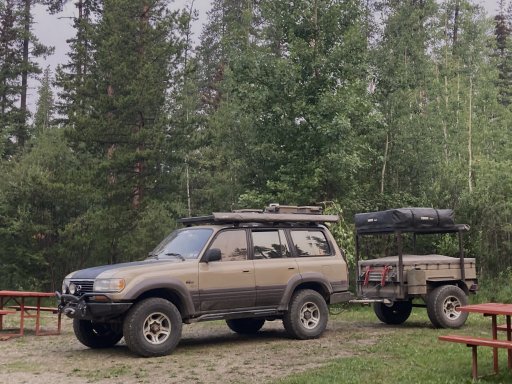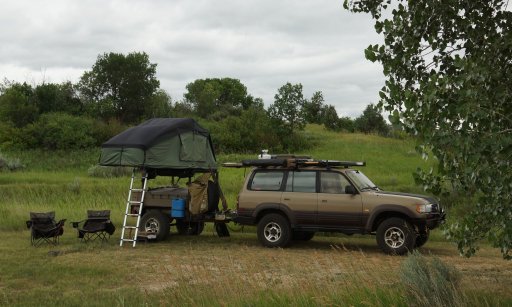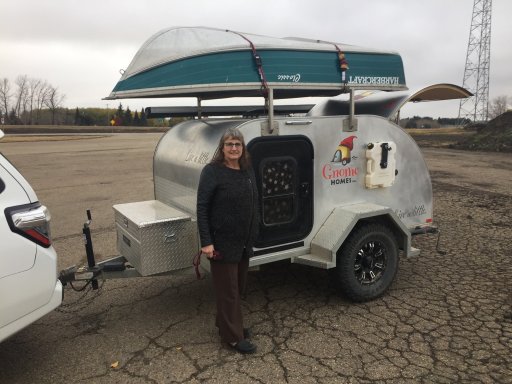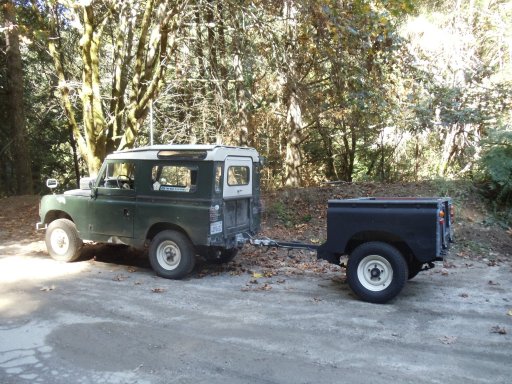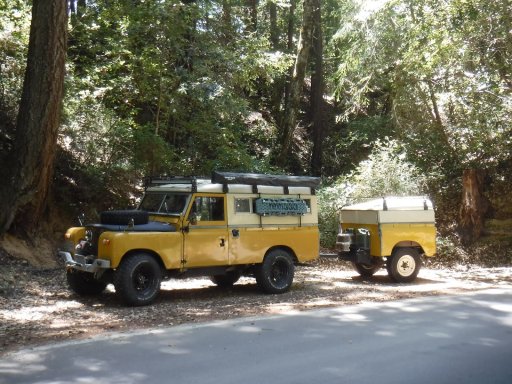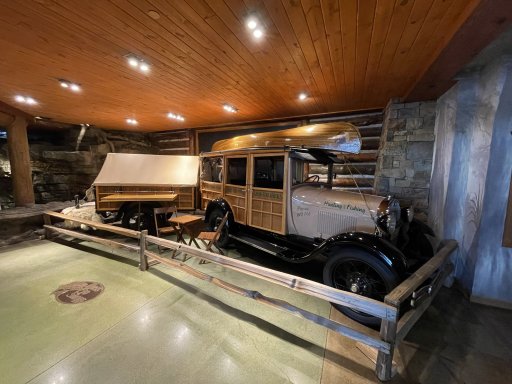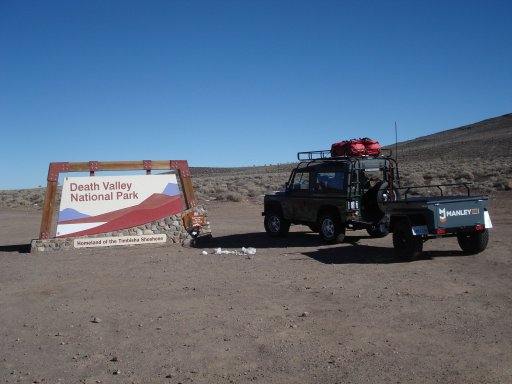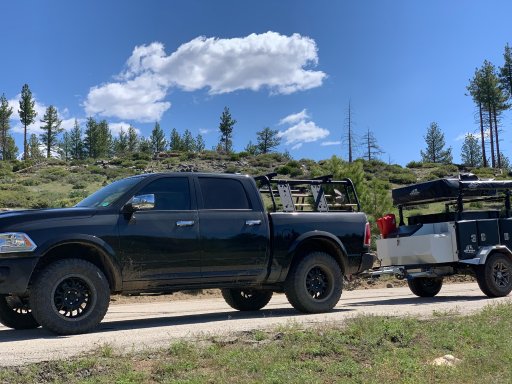Hello,
I'm new here and have limited experience. I have been camping 3 or 4 times a year since High School (early 90's). My buddies and I had access to a mid 80's Toyota SR5 (not mine) that we'd take camping with a tarp, sleeping bags, a pack of hot dogs and some packs of mustard...and maybe some beer. For recovery equipment we had a Come-A-Long and an Axe. The three of us had a blast camping and driving the privet trails on a family friend's land in southeast Ohio. My other buddy acquired a POS jeep that was owned by about 3 different guys in high school. You had to be careful not to let your feet go through the holes in the floorboard. We beat the crap out of those vehicles and tested their limits as dumb young guy do. I was happy to take advantage of the fact that I had no skin in the game. I was amazed to see what they were willing to do with these things, especially my buddy driving his Dad's SR5. They both were very generous with letting me drive the rigs as well. Once the jeep died and my Buddies Father removed access to the truck after a broken windshield (basketball related) and dinged up finder (trial related), camping continued without the offroad fun. We did graduate from the lean-to to some bougee Coleman tents however.
Fast forward a few years later and a couple different friends got brand new jeeps. They had no desire to bet the crap out of them but wanted to hit some trails. I was invited to come along. I watched and helped them slowly mod their jeeps into more capable offroad trail rigs. We would tent camp around Ohio but found the trails are limited. As we started venturing to neighboring states and harder trails in the mid-west, they would again decide to add more lift, bigger tires, etc. I would help them install their new parts as I was the most mechanically inclined. Then they got into rock crawling. ROCKCRAWLING! What the hell is rock crawling? I said. Why don't you just drive faster and raise hell like me and the other boys used to do? It's great fun I said. They rightfully reminded me of the cost of their rigs and the fact they didn't want to destroy them with mud holes and bouncing off trees. Their logic was rock crawling was slower and more refined and therefor easier on the rigs. So slowly we would remove their second set of mods and add more "capable" mods. We would venture out east, west and hit jeep jamborees, Leadville Co, Holy Cross and Moab (sadly I missed that last one). I was well aware and grateful for the fact that I had no skin in the game and yet blessed enough to experience the time in the garage, camping and even some drive time.
As a side note: I also watched them loose the daily drivability of their jeeps and noted the talk of trailering the rigs instead of driving them to far away destinations. I also told myself if I ever get an offroad rig it will be a used beater and only build it once.
Fast forward 15-years and now I have a wife and two daughters (10 & 8). I have a small business and limited time for hobbies. I've also realized I have limited time to make memories with my family. So, I bought a 2-door Bronco with a manual transmission, factory 35'' tires and front and rear lockers (sasquatch package) that I use primarily work for
Bathroom Remodelers. LET'S GO CAMPING!....Shoot, where do I put everything?
My first thought was buying a small trailer that is capable to being towed "off road". I was SHOCKED at the prices first of all. I've found some older M416 trailers (still shocked at those prices). I'm not yet totally there but am stating to except "the price is the price". Then I started wondering the practicality of actually taking a trailer on trails? Then started thinking about base camping and security of our crap from people and weather. Then I started thinking about Smitty-built Scouts and turtleback type trailers. Then started learning about the capabilities and limitations of independent suspension rigs (I have come to the conclusion to try and keep thigs as stock as possible...hopefully) Then started learning about Overlanding. Then started thinking of setting up camp every night just getting to national parks let alone while there. Then started thinking about "off-road" teardrops. Yet again I started thinking about how practical it is to actually drag a trailer on trails the Bronco can handle on its own (not crazily moded up). Then I started wondering do we really need a so called "Off-Road" teardrop if nobody truly drags them along on "moderately hard" trails? Should I just get a "normal" teardrop? Are we locked into base camping anyway with any trailer? If we hook up with other overlanders are they annoyed by someone dragging a trailer along? My goal was to not weigh down the Bronco with roof racks, RTT, hitch racks or swing out bumpers and then suspension upgrades. IMO all that weight makes the vehicle less capable both offroad and as a daily...but is "this is the way"?
My goal is to take the family out camping (which we do with normal family 3 row car). The boiled down issue is I want to now enjoy the capabilities of the Bronco on trails here on the "east coast / mid-west" and still fit all the stuff. I also would like to take a once or twice a year 7-10day overlanding trip with the family to see our country and parks and maybe offroad a bit too. I am also starting to realize the advantages of the quick set-up times Overlanders enjoy. I have "analyses paralysis" big time!
I guess I'm asking what experienced folks think? What limitations/advantages can I expect when towing these 4-types of trailers I'm kicking around (both "off-roading" and "Overlanding")?
1. M416 type trailer with fabricated secured lid.
2. Smitty built Scout with possibly a larger hardshell RTT
3. A proper "off-road" teardrop with a RTT
4. A cheaper mainstream teardrop. (which I may expect to get beat up a bit).
Is towing even a good idea? Is it generally accepted knowledge towing greatly limits you when overlanding in the USA?
Thank you for reading my ramblings and I appreciate your advice or thoughts. I know these are open ended questions. If this topic is beaten to death please point me to some good threads.

